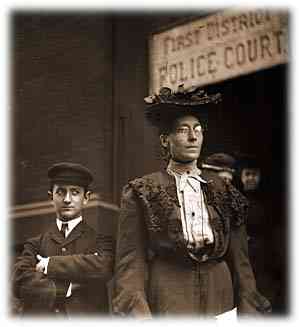|
|

Jewish World Review / June 30, 1998 / 6 Tamuz, 5758
Cal Thomas
PERHAPS NOTHING IS MORE AMUSING or more pathetic than
adults determined to force adolescents to do their bidding.
The defeat of the tobacco bill in Congress and pledges by the
Clinton administration to continue to search for ways to
"save our children" from the ravages of tobacco smoke and
addiction to nicotine will be about as effective as Prohibition.
Today the crusaders are named Bill Clinton, C. Everett Koop
and John McCain. More than 90 years ago there were
Chicago's Lucy Page Gaston and her Anti-Cigarette League of
America. Gaston's crusade
In the beginning, she seemed to be making progress. Cigarette
production peaked at 4.9 billion units in 1897, but by 1901
fewer than 3.5 billion were produced. Gaston's crusade
helped produce laws against smoking, including some that
targeted women only (New York City passed the Sullivan
Ordinance in 1908, prohibiting women from smoking in
public; other municipalities followed New York's example).
For many, such laws only added to the allure of cigarettes.
This forbidden-fruit factor, coupled with the aura of danger
surrounding cigarettes, and men who smoked while away in
World War I, contributed to more, not less, smoking. States
like Arkansas, Idaho, Iowa and Tennessee repealed their
anti-smoking laws in 1917. The defeat of the anti-smoking
crusade was a forerunner to the repeal of Prohibition,
another attempt to regulate a form of human behavior that
encountered strong resistance.
As historian Robert Sobel recounts in his book They Satisfy:
The Cigarette in American Life, Gaston toyed with the idea
of running for president. Her platform sounded like a
forerunner of the Christian Coalition: "clean morals, clean
food and fearless law enforcement." There was even an
anti-Communist angle. Gaston believed that cigarettes were a
Bolshevik plot because some brands had been imported from
Russia.
Gaston was appalled when Warren Harding -- a cigarette
smoker -- was elected president in 1920. She said Harding
had a "cigarette face" (a diagnosis invented by Gaston). She
predicted Harding would come to no good, that his
administration would be laced with corruption, and that
Harding would even die in office before the end of his term
(he did, but not from cigarette smoking). Gaston was struck by
a trolley in 1924 and later died. Her doctor said the cause of
death was not her injuries, but throat cancer, though there is
no indication she was a smoker.
Sobel notes that when she started the National Anti-Cigarette
League, 4.4 billion cigarettes were consumed. The year she
died, more than 73 billion cigarettes were sold.
In 1905, the New York Times had editorialized against one
proposed anti-cigarette law in Indiana, calling it "fussy
legislation" and "as scandalous an interference as can be
conceived with constitutional freedoms." Today The Times,
which flipped on abortion, has also flipped on cigarettes,
believing teen-agers can be dissuaded from smoking without
regulation of the "cool" factor.
It is unlikely that today's anti-tobacco crusaders and
politicians will be any more successful than Lucy Page Gaston
and her followers. Adults telling kids they don't want them to
smoke will likely encourage them to puff even more. What
was that about those who learn nothing from history are
doomed to repeat
 Smoke gets in their eyes
Smoke gets in their eyes
paralleled the work of the
Women's Christian Temperance Union, from which she
emerged to lead her own campaign to stamp out cigarette
smoking. It was Gaston who invented the term "coffin nails."
Next to Carry Nation, who entered a Wichita, Kan., saloon
with a hatchet in January, 1901, and within minutes
destroyed the place, Gaston was the leading female reformer
in America.

Lucy Page Gaston  Calvin Coolidge, who succeeded Harding in 1924, didn't like
Prohibition because "any law that inspires disrespect for
other laws -- the good laws -- is a bad law." Banning liquor
helped fund organized crime. People with good motives used
wrong tactics in an attempt better social conditions and,
instead, made things worse. Adolph Busch, the brewer, wrote
President Coolidge: "An unpopular statutory control of
individual habits can never be substituted for voluntary
temperance, individual self-restraint and reasonable statutory
regulation. The law should be written in terms of temperance
and reasonable regulation; then the evils of the present
system would disappear."
Calvin Coolidge, who succeeded Harding in 1924, didn't like
Prohibition because "any law that inspires disrespect for
other laws -- the good laws -- is a bad law." Banning liquor
helped fund organized crime. People with good motives used
wrong tactics in an attempt better social conditions and,
instead, made things worse. Adolph Busch, the brewer, wrote
President Coolidge: "An unpopular statutory control of
individual habits can never be substituted for voluntary
temperance, individual self-restraint and reasonable statutory
regulation. The law should be written in terms of temperance
and reasonable regulation; then the evils of the present
system would disappear."
